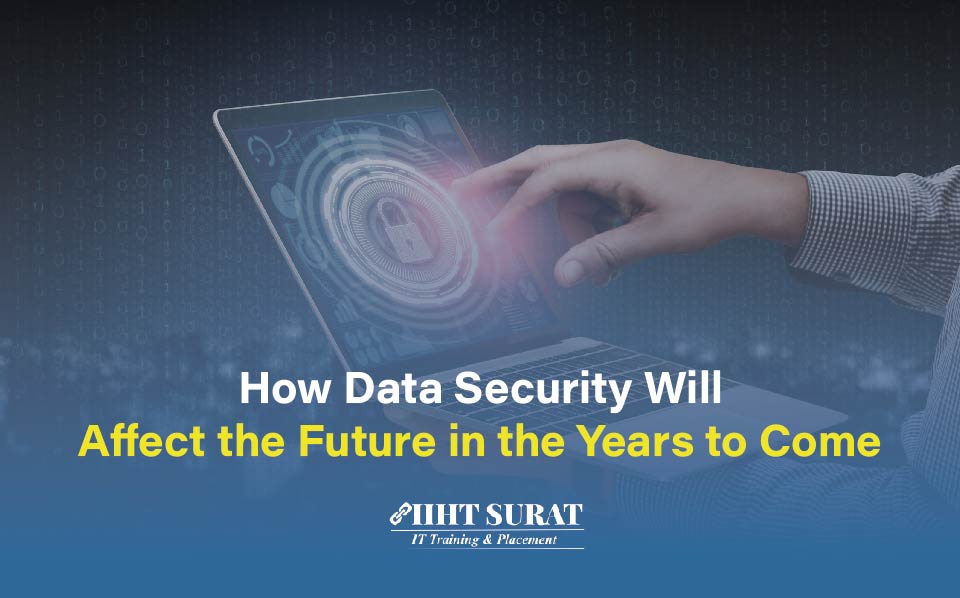
IIHT SURAT
March 23, 2022
It is no secret that the world is moving fast toward digitalization. Everything, including banking, shopping, and paying bills, is just a click away. Especially after the pandemic hit the world, more actions are transitioned toward the world of the internet. This transition has brought along with a new wave of threats and danger. The more connected we become, the more our need for data security becomes. And that’s why the future of data security will require becoming rigid.
Cyber Data Security
is a comprehensive subject. It includes who is spotting your data and exactly what data can be viewed. Cyber security has existed since the creation of the first system virus in 1971. There are laws and rules in place to ensure the future of data security. Some loopholes still exist which can make data security vulnerable.
The impact of cyber security in the future is immeasurable. It is a problem that has been escalating in severity and size since it began, and there is no end to it until it is stopped.
Ever wonder what the future of data security looks like? Though it is a long run, with the rapid evolution in the digital world, it is sure to make the decades fly by. Keeping an eye on what will happen in the coming years in Data protection worldwide is crucial. Forecasting the future for data security isn't about looking in a crystal ball for fun by envisioning the future, we can be prepared for the potential changes and be ready to face the new digital world.
Related:
The Scope Of Cyber Security In Digitalized India
Future Trends of Cyber Security
Remote Working
When the pandemic hit the world, all IT Organizations adopted the culture of working remotely and shifting their services from premises to the cloud and made temporary arrangements for Data security to make the organization running at that time. But, as organizations accept this culture permanently, the demand for preserving Cyber data security increases with time. There will be challenges in implementing the security controls, maintaining visibility into security events, and observing the security requirements for the smooth functioning of the organization and avoid the breach in
cyber security course
Automation
Cybersecurity solutions have been in a no-win situation for years. It possibly cannot keep up with all the threats. Thus the demand for cyber data security experts keeps growing to handle these crucial circumstances. Instead of increasing human resources to accommodate the shortcomings in the technologies, they must increase their support for automation. Security data systems that use Artificial intelligence and machine learning, which perform constant data analytics, can detect new threats much faster than people can. They can find subtle patterns of malicious activity that humans would not see.
Zero Trust Principle
The zero Trust Principle refers as don't assume that anything or anyone should be trusted. Verify the reliability of each device, user, or service before granting it access to your resources. Frequently reverify the trustworthiness during access to ensure that the connection has not been compromised. Also, to preserve Cyber data security, Give each device access to only the resources it needs to minimize the impact of any violation of trust.
Cloud computing
Cloud computing is the most suitable approach for cyber data security. It is an emerging prototype of storing and processing data from remote servers. This Cloud data security solutions allow users to use a reliable and secure platform to host their data. Cloud computing cuts operational expenditures by removing software and hardware maintenance equations.
Cloud security solutions allow companies to scale their functions by adding more server capacity.
It is anything that we have learned from past affairs is that data is important and protecting the data is even more critical. Many changes have already been implemented by organizations to protect their data, but there are still some more changes that should be implemented in the future to safeguard the data. It would not be wrong if we call the upcoming years a revolution in data security.



